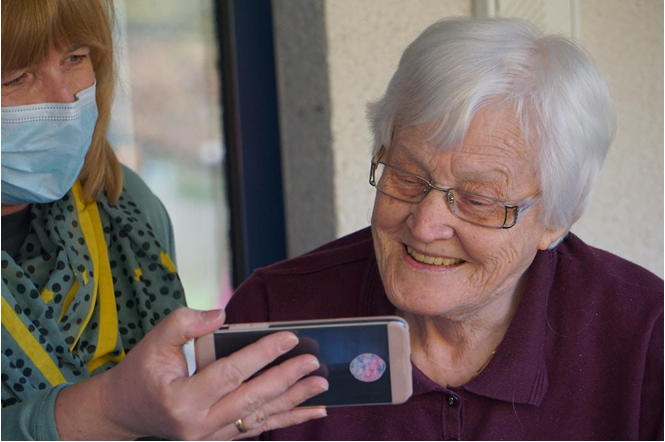Alzheimer’s disease is a common yet life-altering condition affecting people and their families all over the world. When a loved one is diagnosed with Alzheimer’s, it leaves an indelible impact on the lives of the family members involved, both emotionally and physically. How families deal with this impact greatly determines the patient’s quality of life. Below we delve deeper into these areas.
Alzheimer’s statistics show that about 6.7 million Americans aged 65 and older have Alzheimer’s today. This translates to about one new case every 65 seconds. Each new case of Alzheimer’s disease presents a unique set of emotional challenges for the families involved. Watching a loved one slowly lose his or her memory, cognitive abilities, and even personality elicits profound feelings of loss and grief.
Many family members grapple with emotions like guilt, frustration, and helplessness as these changes take place, and they are unable to halt the process. The sadness, fear, and anxiety associated with Alzheimer’s affects family members as well as the patients themselves. Even after the disease has run its course, bereavement often lingers as families try to come to terms with the profound changes their loved ones underwent.
Emotionally supporting a family member suffering from Alzheimer’s disease requires compassion and patience. Understanding that the Alzheimer’s patient is not deliberately causing distress or challenging behaviors is key to minimizing frustration and guilt. Families should be encouraged to seek support from support groups, spiritual advisors, or mental health professionals during this emotionally taxing journey. Strategies to cope with the emotional impact should be part of a holistic plan of care for Alzheimer’s patients.
Many families experiencing Alzheimer’s find that their relationships with the patient and each other are tested in unanticipated ways. For instance, siblings might disagree on the best course of care for a parent with Alzheimer’s, causing rifts that can last for years. Additionally, spouses of Alzheimer’s patients might feel isolated as their partners become more and more dependent. Understanding these challenges can help families prepare themselves and seek professional help when needed.
The Physical Burden of Caregiving
Alzheimer’s disease touches every aspect of a patient’s life, which means that the role of caregivers extends to every aspect as well. Many caregivers find themselves on duty 24 hours a day, seven days a week. The physical tasks can be exhausting, especially for older spouses who themselves may be battling health issues. The disease progresses gradually, shifting from forgetfulness and confusion to significant memory loss, inability to recognize loved ones, deteriorated communication skills, incontinence, and eventual bodily failure. As the disease worsens over time, caregivers must assist with even the most intimate and personal tasks, such as feeding, bathing, and toileting.
There’s also a significant impact on the caregiver’s personal life. Free time gradually diminishes as the disease progresses, social activities become less frequent, vacations or travel may become impossible, and even simple pleasures can be overtaken by the constant demands of care. Additionally, sleep deprivation, inadequate diet, lack of physical activity, and constant stress often lead to health problems among caregivers. It’s not just a question of time and energy but also the physical strength and stamina required to provide care for someone with Alzheimer’s.
Volunteers and paid professional caregivers can help relieve the physical burden of caring for a family member with Alzheimer’s disease. While it may initially be difficult to accept outside help, updated care strategies have proven that respite for the caregiver is essential to prevent burnout. Using available resources can enable caregivers to maintain their physical, emotional, and spiritual health while caring for their loved ones.
The Psychological Effects on the Family
In addition to the physical and emotional tolls of Alzheimer’s, there are psychological impacts on families as well. The stress, anxiety, and depression common in Alzheimer’s caregivers can develop into full-blown mental health issues. The mental well-being of the family members is as important as the health of the Alzheimer’s patient.
Family members experience varying degrees of stress and anxiety based on their attachment to the patient, the level of care they provide, their coping mechanisms, and their mental state. Stress can manifest as physical complaints, mood changes, alterations in sleep patterns, and modifications in eating habits. Chronic stress can lead to serious mental health issues such as depression, anxiety disorders, and even post-traumatic stress disorder (PTSD).
It is essential not to lose sight of one’s mental health in a caregiving situation. Therapists and counselors can offer assistance and teach valuable coping strategies. Support groups, both online and in-person, can also provide comfort in shared experiences and feelings. These resources, again, are essential for mitigating the psychological effects of caring for a loved one with Alzheimer’s.
Acceptance and Healing

Throughout the journey of dealing with Alzheimer’s disease, acceptance plays a critical role for the families involved. Accepting that a loved one has Alzheimer’s disease can be challenging but is essential for their care and the family’s healing process. Rather than resisting the changes, acknowledging them can lead to developing coping strategies and preserving the dignity of the patient.
Healing comes from adapting to the new reality and creating a new normal. It’s about finding joy and gratitude in shared connections, even when communication gets hard. It involves seeing beyond the disease to the person loved and cherished. This perception shift can be a source of strength and resilience for families dealing with Alzheimer’s.
Mourning the loss of a loved one’s cognitive abilities is a process shared by many families. Despite the constant challenges and hurdles, it’s crucial to remember that you’re not alone. Millions of families are going through the same journey. Together, leaning on each other and sharing experiences can bring about acceptance and eventual healing.
Read Also: How To Succeed in the Health
Finding Balance in The Alzheimer’s Journey
The journey with Alzheimer’s is undoubtedly a challenging one. It requires strength, resilience, patience, and a lot of love. For the families involved, it’s a delicate juggling act balancing their physical and emotional health and well-being, financial stability, legal obligations, and their own personal life.
Providing care for a loved one in their time of need is undoubtedly one of the most selfless things someone can do. With the right support and resources, families can navigate through this difficult phase. It’s about recognizing the constraints and seeking help, realizing the demands and finding respite, understanding the impact, and healing through acceptance.
Every journey with Alzheimer’s is unique. By taking one step at a time, maintaining a positive attitude, and focusing on each day, families can find a fulfilling, if challenging, journey through Alzheimer’s. In the end, it’s about making the best of a tough situation, cherishing the joys amidst the hardships, and providing a safe, loving, and dignified pathway for the family member with Alzheimer’s. There are many resources, such as the Fisher Center for Alzheimer’s Research Foundation, which provide tips for caregivers and detailed information about the disease to help with your journey.
Altogether, understanding the impact of Alzheimer’s disease on families is critical for effective management. As Alzheimer’s gradually strips away memories and cognitive abilities, it can also reveal the strength, endurance, and profound love within a family. It’s this love that ultimately inspires, motivates, and empowers them to navigate the complex journey of Alzheimer’s.
Overall, approaching the journey with an open mind, a compassionate heart, and a ready spirit can help families mitigate the impact and, ultimately, live the best possible life amidst the challenges of the disease.

